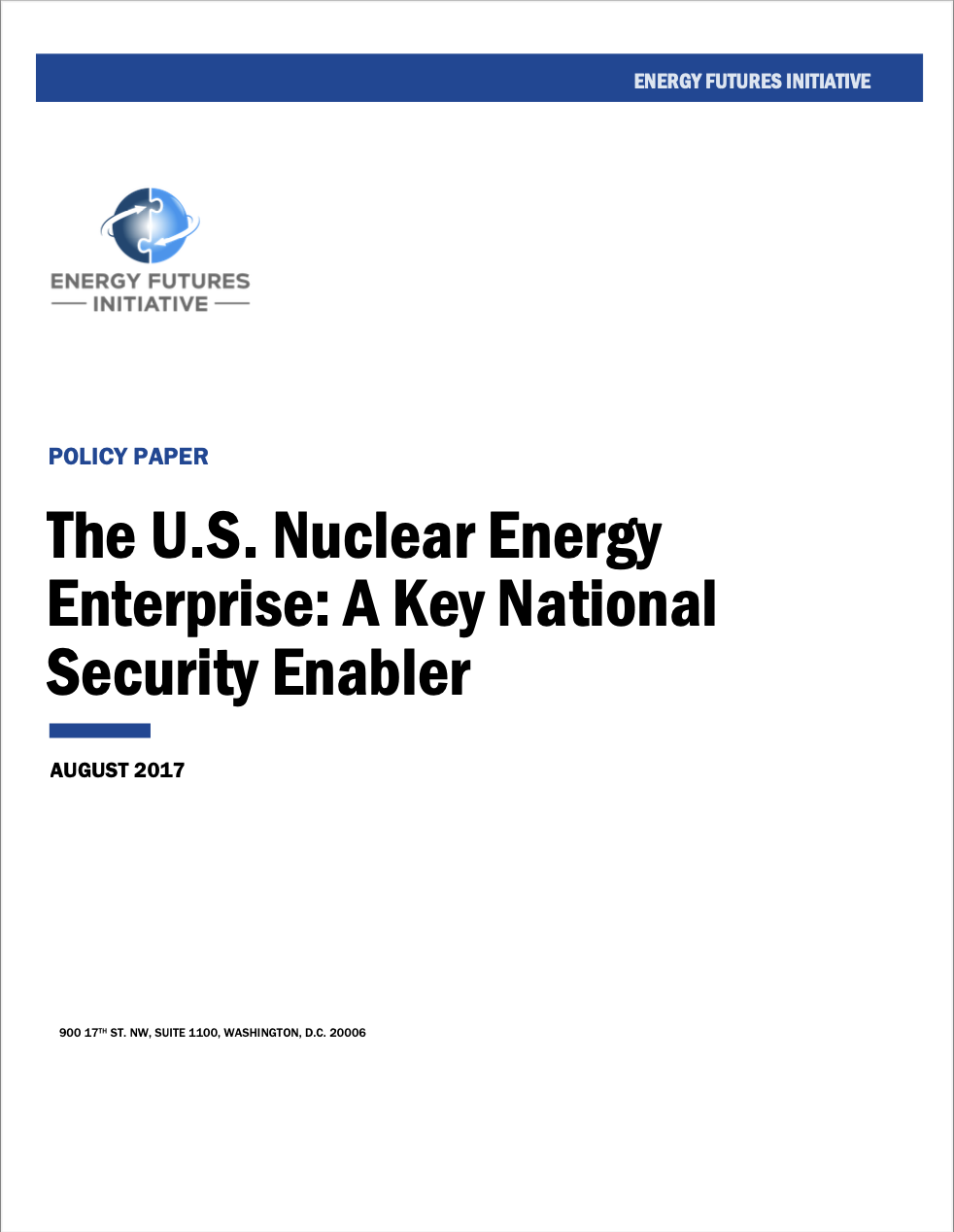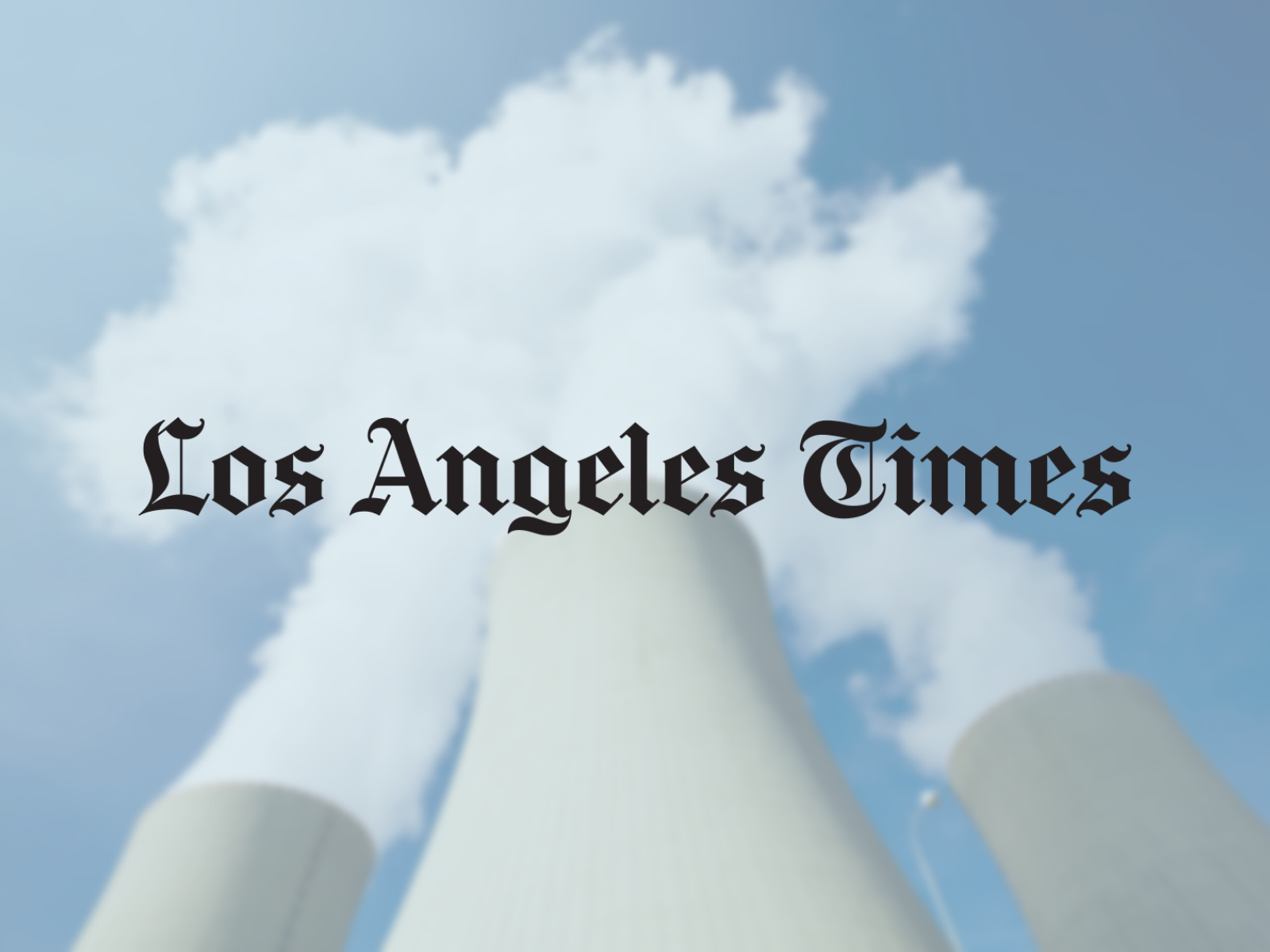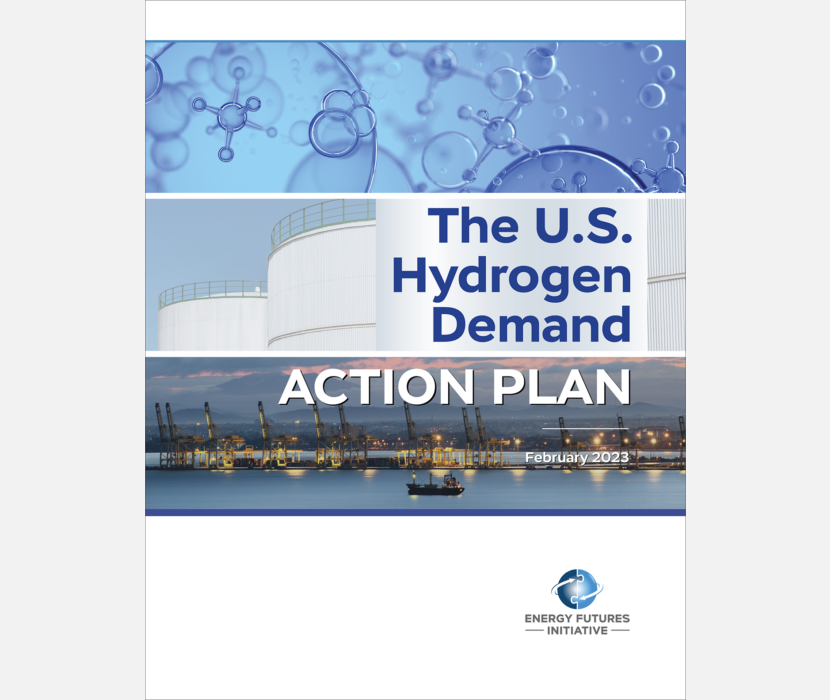The U.S. Nuclear Energy Enterprise: A Key National Security Enabler (August 2017) examines the key role of the U.S. nuclear energy enterprise in national security imperatives and outlines immediate actions that the government should take to ensure the viability of that sector. The U.S. nuclear industry also has an important role in supplying the nation’s electricity system and maintaining a robust associated supply chain (equipment, services, and skilled personnel) necessary for U.S. leadership in global nuclear policy. This was the first major report released by the Energy Futures Initiative (EFI) since its founding in June 2017.
The report analyzed three national security objectives for which nuclear energy plays a key role: maintaining U.S. leadership in nuclear non-proliferation, supporting the nuclear U.S. Navy, and supporting the global strategic stability and deterrence value of nuclear weapons. Among the points in the report are that the U.S. Navy will eventually need additional highly enriched uranium to fuel its reactors for long intervals between refueling. The entire supply chain from uranium feed to the enrichment technology should be of U.S. origin, but we do not currently have that capability domestically. The dominant Russian presence in the Mideast nuclear power market is also a concern.
The United States also faces the threat of a diminished nuclear workforce, in part from retirements and in part because U.S. university programs that feed into nuclear jobs are likely to tip towards international students who cannot fill U.S. national security roles.
The report also highlights three “externalities” that motivate public support for nuclear power:
- Climate change risk mitigation (nuclear power and renewables are “zero” greenhouse gas emissions technologies, and nuclear has, by far, the highest capacity factor)
- Risk management (the history of natural gas price volatility suggests the need for a diverse energy generation portfolio, including nuclear power)
- National security (nuclear power is intimately connected with U.S. leadership in global nuclear nonproliferation policy)
These externalities must be addressed at the federal level. The U.S. electricity system is a lifeline network on which all other major operations in the country depend, including many that directly and indirectly support key components of our national security infrastructure.
As part of the report, EFI urges the Federal Energy Regulatory Commission to place a greater emphasis on the national security importance of nuclear power and its supply chain. EFI’s report recommends that the government make maximum flexible use of its existing resources and capabilities, including credit support, tax incentives, and federal siting and/or purchase power agreements, to bolster current new builds and encourage additional new builds.
EFI CEO Ernest Moniz highlighted key takeaways from the report in a conversation with Jason Grumet, President of the Bipartisan Policy Center (BPC) in an event hosted by BPC in October 2017. The report also attracted coverage in the following energy publications: Reuters, Breaking Energy, Nuclear Newsroom, World Nuclear News, and Daily Energy Insider. This report is featured on the Homeland Security Digital Library as a reference for nuclear energy infrastructure and U.S. national security.
Related Content
(Share this post with others.)







